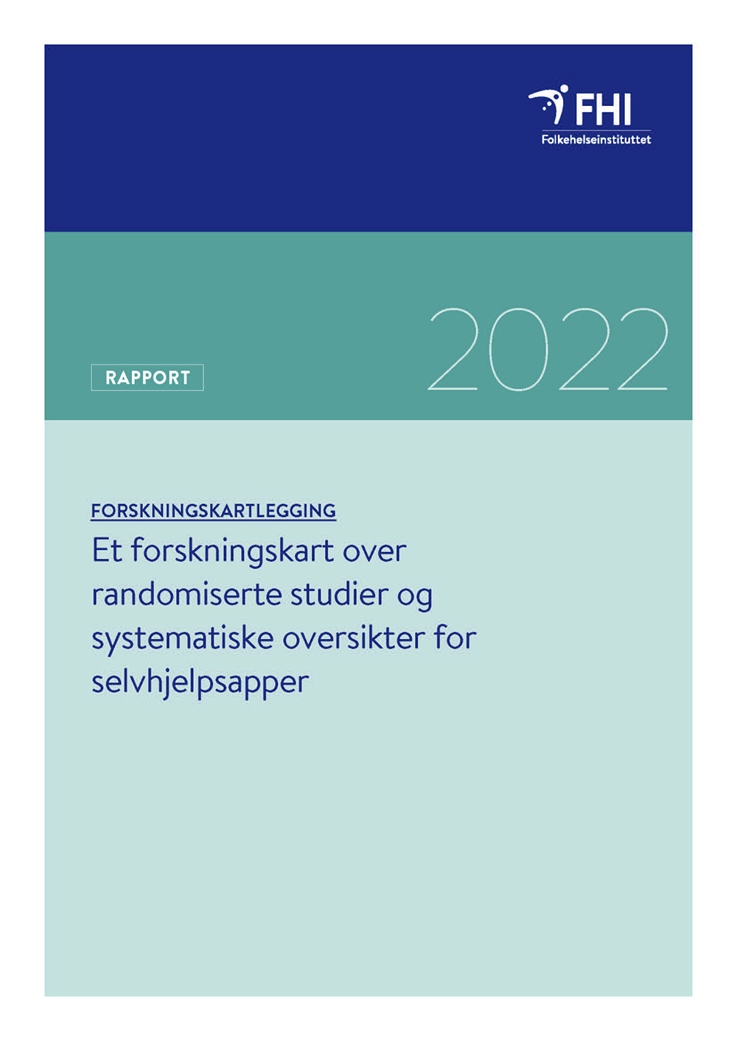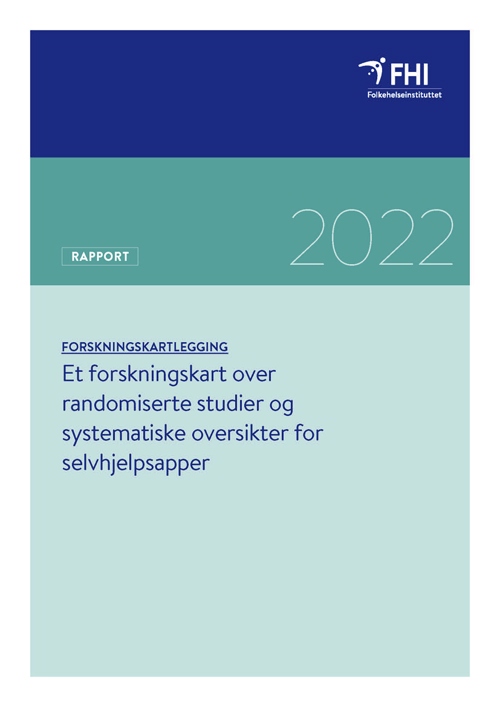An evidence and gap map of randomized trials and systematic reviews for self-help apps
Mapping review
|Published
We were commissioned by the Norwegian Directorate of Health to prepare an evidence and gap map of research on apps as self-help tools to improve health.
Key message
One of the UNs Sustainable Development Goals is to reduce early death due to non-communicable disease by 30% by 2030. The aim of this evidence and gap map is to provide an overview of research about the effect of health-related self-help apps that are used as tools to improve health and identify any eventual evidence gaps.
An evidence and gap map (EGM) is a systematic evidence synthesis product that categorises and displays the available evidence relevant to a broad research question. It cannot say anything about the effectiveness of the apps themselves. We identified a total of 12 886 references. 802 met our inclusion criteria, were coded, and included in this map.
- There is a wide variety of randomized trials and systematic reviews on the effect of health-related apps as self-help tools (n=802).
- A large portion of these studies were small with less than 99 participants.
- 50% of the studies were published in the last two years.
- Most of the studies look at physical health.
- The outcome that was present in the most studies was related to changes in symptoms /state.
Health related self-help apps are a field in rapid development and change. It is very likely that this evidence and gap map will become outdated in a short period of time.
Links to the interactive evidence and gap maps:
EPPI Mapper: www.nornesk.no/forskningskart-selvhjepsapper/forskningskart-selvhjelpsapper.html
EPPI-Vis: https://eppi.ioe.ac.uk/eppi-vis/login/open?webdbid=153

